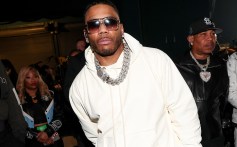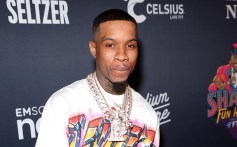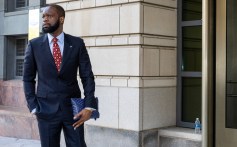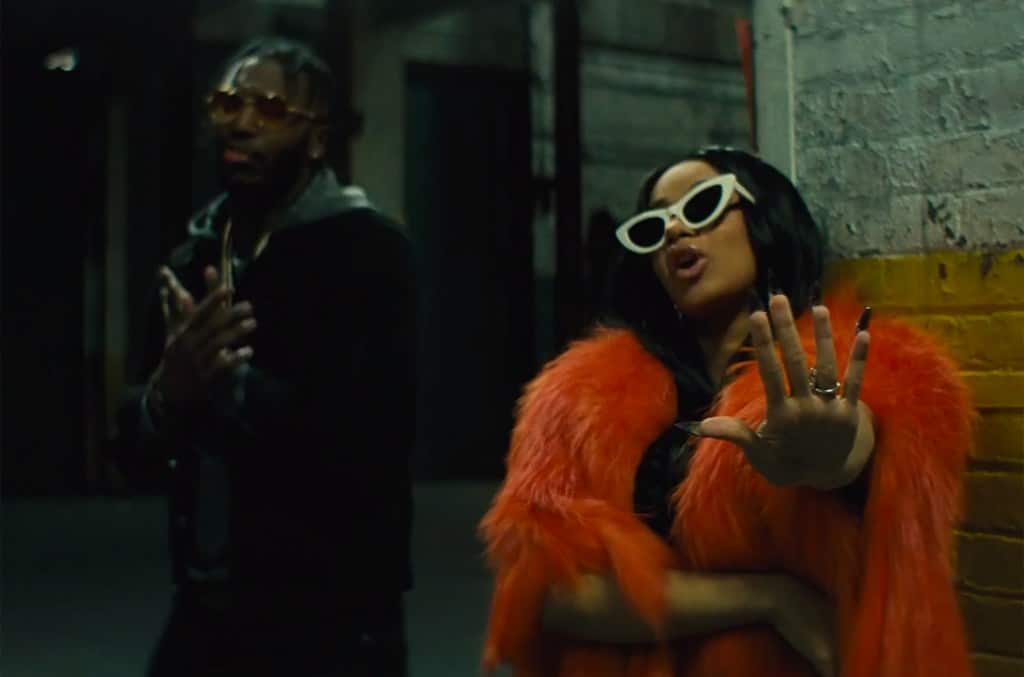Rap
Trending on Billboard
UPDATE (Dec. 2): In a judgment entered Tuesday, Judge Cecilia M. Altonaga reduced Megan Thee Stallion‘s trial award from $75,000 to $59,000. The judge said Megan can’t get damages for defamation because the jury found Milagro Gramz to be a member of the media, and the rapper’s team did not send a pre-lawsuit notice required for libel claims against journalists.
Therefore, the judgment finds in Megan’s favor only on intentional infliction of emotional distress and promotion of an altered sexual depiction, two claims for which the jury awarded Megan a total of $59,000. Judge Altonaga struck the additional $16,000 that Megan won for defamation.
Megan’s lawyers will contest the reduction in post-judgment motions. They’ll also seek at that time to add legal fees onto the damages amount.
PREVIOUSLY: A jury has held celebrity gossip blogger Milagro Gramz liable for defaming Megan Thee Stallion and reposting a deepfake pornographic video of the rapper in the wake of her shooting by Tory Lanez.
A federal jury in Miami determined in a Monday (Dec. 1) verdict, reviewed by Billboard, that Gramz harmed Megan with her social media antics and awarded $75,000 in damages. That number will likely grow later on, since Megan won on a Florida law with a fee-shifting provision that could require Gramz to reimburse some of her hefty legal bills from the elite firm Quinn Emanuel.
“We’re thankful for the jury’s commitment to reinforcing the importance of truth, accountability and responsible commentary on social media,” said one of Megan’s lawyers, Mari Henderson, later on Monday. “This verdict sends a clear message that spreading dangerous misinformation carries significant consequences.”
A lawyer for Gramz, Jeremy McLymont, said in a statement, “We remain proud of the defense we presented and of Ms. Cooper’s willingness to stand up for her voice.”
“Ms. Pete and her attorneys asked the jury to send a message to the community by awarding Ms. Pete with an astronomical amount of damages,” said McLymont. “Indeed, the jury rejected Ms. Pete’s request and refused to send any such message as shown by the nominal damages Ms. Pete recovered.”
Related
Megan’s lawyers argued during the weeklong trial that Gramz acted as Lanez’s “mouthpiece” to spread misinformation and tank her reputation. Lanez (Daystar Peterson) is serving a 10-year prison sentence after being convicted in 2022 of shooting Megan in the foot during a drunken argument following a pool party at Kylie Jenner’s house in the Hollywood Hills. He continues to maintain his innocence, though the conviction was recently upheld on appeal.
A loyal Lanez supporter, Gramz has for years used her social media presence to doubt the veracity of Megan’s account. Many of her posts about the shooting case have been outright false, such as her claims that Lanez’s gun supposedly went “missing.” Megan’s lawsuit also accused Gramz of violating a Florida law against “altered sexual depictions” by encouraging followers to watch a deepfake pornographic video of her.
Gramz denied being paid by Lanez and said her social media posts were First Amendment-protected journalism. The question of whether Gramz is a protected member of the media became a key issue during the trial. Jurors determined on Monday that she does have some media credentials, teeing up more post-trial litigation over whether the defamation verdict can stand.
Lanez himself was not a defendant or a witness in this trial. The Canadian rapper was supposed to give a videotaped deposition from prison, but was so uncooperative during the repeated questioning from Megan’s lawyers that he was held in contempt.
This story has been updated to include additional details on the verdict and statements from both sides.
Trending on Billboard
Fugees rapper Pras Michel was sentenced Thursday (Nov. 20) to 14 years in prison following his conviction on illegal foreign lobbying and conspiracy charges.
The rapper, who rose to fame alongside his bandmates Lauryn Hill and Wyclef Jean, was found guilty in 2023 on federal accusations that he orchestrated a “foreign influence campaign” to get the U.S. to drop an investigation into fugitive Malaysian financier Jho Low.
Related
At a hearing Thursday in D.C. federal court, Judge Colleen Kollar-Kotelly sentenced Michel to 14 years in prison, followed by three years’ probation. He was already ordered last month to forfeit a whopping $64 million allegedly linked to the scheme.
In an exclusive statement to Billboard, Michel’s spokeswoman Erica Dumas said: “Pras has spent his career breaking barriers and defying expectations. While today marks a difficult moment, it is not the end of his story or his legacy. He is profoundly grateful for the continued support of those who believe in him as he prepares for what lies ahead.”
Prosecutors had sought a “severe” sentence for a man who they said had “betrayed his country for money.” In court filings, they said that an average sentence for others convicted of a similar-sized financial scheme had been more than two decades: “The Court’s sentence should reflect the seriousness of Michel’s offenses,” they said.
Michel’s attorneys, on the other hand, had called for a far lighter sentence of only 36 months. They said the government was seeking a type of sentence “typically reserved for terrorists who murder innocents and the heads of the largest Mexican drug cartels.”
Related
Michel will surrender to authorities on Jan. 27.
Composed of Hill, Jean and Michel, the Fugees rose to fame in the 1990s with hits like “Killing Me Softly,” “Ready or Not” and “Fu-Gee-La.” After splitting up in 1998, the three each had successful solo careers and mostly stayed separate until recent years, during which they’ve attempted multiple reunion tours.
In 2019, Michel was hit with sweeping federal criminal charges over accusations that he funneled money from Low, the mastermind of the billion-dollar 1MDB embezzlement scheme, to a lobbying campaign aimed at getting the first Trump administration to drop its investigation into the disgraced financier. He was also accused of secretly funneling Low’s money to Barack Obama’s 2012 presidential campaign, and of later trying to influence an extradition case on behalf of China.
In April 2023, following a trial that included testimony from actor Leonardo DiCaprio and former U.S. Attorney General Jeff Sessions, Michel was convicted on 10 counts, including conspiracy to defraud the U.S. government.
Michel later sought a re-trial on the grounds that his ex-lawyer, David Kenner, botched his defense by using an unproven artificial intelligence (AI) tool to craft closing arguments. That motion was later denied, though Kenner eventually pleaded guilty to a criminal contempt charge over allegations that he leaked grand jury materials to reporters ahead of the trial.
Michel’s attorneys will now launch his appeal of both the sentence and the underlying convictions; such appeals can take months or years, and typically face an uphill climb to reverse a conviction.
Trending on Billboard
An appeal filed by Making the Band contestant Sara Rivers aimed at reviving her $60 million sexual assault lawsuit against Sean “Diddy” Combs has been abruptly dismissed — a move that came after her lawyers failed to file basic court forms.
Rivers sued Combs earlier this year over claims that he harassed and groped her during the filming of the 2000s MTV reality show, but a federal judge ruled this summer that she’d waited far too long to sue. After that ruling, she quickly filed an appeal aimed at overturning it.
Related
But last month, according to court records reviewed by Billboard, the appeals court dismissed Rivers’ case. The reason? Her attorneys failed to meet a required deadline to file basic procedural forms that are filed at the start of any appeal.
That failure means that the earlier ruling dismissing Rivers’ case is now final, and most of her case is now closed. A small element of the case has not yet been fully dismissed, but the majority of her case was dismissed permanently.
Ariel Mitchell, the attorney who represents Rivers and failed to make the required filings, did not immediately return a request for comment on Thursday (Nov. 20). Reps for Combs also did not return a request for comment.
Rivers, who became a member of hip-hop group Da Band, sued Combs in February, claiming he had cornered her in a recording studio and “ran his left hand across her breasts.” She also claimed that he later blackballed her in the music industry in retaliation for rebuffing his advances.
Related
The case was one of dozens of civil lawsuits filed against Combs over the past two years alongside his blockbuster federal criminal case. Following a two-month trial, Combs was acquitted last month on the most serious charges of racketeering (RICO) and sex-trafficking in that case, though he was found guilty on two lesser counts of interstate prostitution. Last month, he was sentenced to four years in prison.
In August, Judge Jed Rakoff ruled that Rivers had filed her case far too late. He said allegations centered in the 2000s were clearly filed years after the statutes of limitations had expired.
“It is important to remember the many positive purposes served by statutes of limitations,” the judge wrote. “They promote justice by preventing surprises through plaintiffs’ revival of claims that have been allowed to slumber until evidence has been lost, memories have faded, and witnesses have disappeared.”
Judge Rakoff said Rivers had invoked a “hodgepodge” of arguments for why the time limits should be lifted in her case, including that she was afraid of retaliation from Combs and his business empire. But the judge said that wasn’t enough.
Related
“While Rivers does allege that she experienced a general fear of retaliation preventing her from speaking out against Combs, general claims of psychological stress cannot give rise to duress tolling,” the judge said, referring to the technical term for such a delay.
Rivers quickly appealed, setting the stage for a lengthy battle before the U.S. Court of Appeals for the Second Circuit. But after making her initial case filings, Mitchell never filed another document in the case — even after being warned to do so.
In early October, the court warned her that failure to submit Form C and Form D (a basic case synopsis and disclosure regarding transcripts, respectively) would result in the case being dismissed in two weeks. Mitchell never filed those forms, and the case was duly dismissed on Oct. 17.
Mitchell is the same attorney that Combs is currently suing for defamation over allegations raised by Courtney Burgess, another one of her clients. In TV interviews, Burgess claimed to have videos showing Combs in sexual encounters with celebrities — a claim Mitchell later echoed. Combs says such videos don’t exist and that he was defamed by Mitchell and Burgess’ “outlandish claims.” That case is pending.

Trending on Billboard
Nelly is demanding that a lawyer for one of his former St. Lunatics bandmates repay more than $78,000 he spent in legal bills to defeat her “frivolous” lawsuit over the rights to his debut album Country Grammar.
The case, filed by ex-bandmate Ali, was dropped in April after Nelly argued it was obviously filed years after the statute of limitations had expired. Last month, a federal judge ruled that the case was so bad that Ali’s lawyer must repay his legal bills as punishment for pursuing it too far.
In a court filing on Wednesday, Nelly’s attorneys handed Ali’s lawyer the tab: $78,007 in legal fees for three copyright litigators, covering 142 hours they say they spent working on the case after it was clear it should have been dropped.
Related
“These rates are reasonable because they reflect the market rate for similar services to our quality of work in the New York City area,” Nelly’s attorney Kenneth Freundlich writes in the filing.
Ali’s attorney, Precious Felder Gates, will have a chance to argue for a lower fine before the judge settles on a final number. In a statement to Billboard on Thursday, she said she still believes the sanction itself was “unwarranted,” saying she’d “acted with the honest conviction that our client’s claims merited judicial consideration.”
Wednesday’s filing highlights the risk of filing questionable lawsuits against well-heeled defendants – and a potential weapon for top musicians who have complained about a rise in such cases. Ed Sheeran, Cardi B, Jay-Z and many other stars have warned that such lawsuits are often aimed at extracting quick settlements by exploiting the hassle and expense of litigation.
The case against Nelly was filed last year by members of St. Lunatics, a hip-hop group also composed of St. Louis high school friends Nelly, Ali (Ali Jones), Murphy Lee (Tohri Harper), Kyjuan (Robert Kyjuan) and City Spud (Lavell Webb). It centered on Country Grammar, the star’s debut solo album that spent five weeks atop the Billboard 200 and helped launch a career that reached superstar heights with his 2002 chart-topping singles “Hot in Herre” and “Dilemma.”
Related
The lawsuit alleged that Nelly had cut his former crew members out of the credits and royalty payments for the hit album. It claimed the star had repeatedly “manipulated” them into falsely thinking they’d be paid for their work.
But three of the St. Lunatics quickly dropped out, saying they had never actually wanted to sue Nelly and hadn’t given authorization to the lawyers who filed the case. Though Ali initially moved ahead alone, he dropped the case entirely in April. That move came as Nelly’s lawyers were seeking to dismiss the decades-delayed case under the Copyright Act’s three-year statute of limitations.
Though the case was over, Nelly’s attorneys refused to let Ali and his lawyers walk away. They asked for sanctions — meaning legal penalties — over a “vexatious” lawsuit that “should never have been brought.”
In the American legal system, each side usually pays its own legal bills, even including defendants who win a lawsuit that they feel they shouldn’t have faced. Only in rare cases, including as punishment for misconduct, do judges order the loser to repay the winner’s fees.
Last month, U.S. Magistrate Judge Robert W. Lehrburger said the case against Nelly was that kind of rare situation. He said it should have been “patently obvious” to Felder Gates that the case was doomed by last November, but that she had instead “doubled down.”
Related
Felder, the judge said, should face punishment for “vexatiously protracting the proceedings in bad faith by her attempt to obfuscate the facts she knew barred Jones’s claims and her subsequent refusal to withdraw the amended complaint in the face of overwhelming arguments that the claims could not possibly succeed.”
At the time, Freundlich said he hoped the ruling “sends a message to lawyers that there will be consequences for dragging a defendant into an action that is frivolous on its face.”
Wednesday’s filing explained the amount that Nelly’s lawyers say Felder Gates should pay under that order. Freundlich, a veteran music industry litigator, says he spent 19 hours at his rate of $725 per hour; a senior counsel at his firm, Jonah A. Grossbardt put in 88 hours at $575 per hour; and an associate, Hugh H. Rosenberg, worked 35 hours at $375 per hour.
Such rates are typical for attorneys at those levels in major law firms in New York and Los Angeles. Many lawyers at bigger firms charge even more, and complicated cases can cost millions to litigate. But the judge is not required to grant the entire request and could very well settle on a lower number.
Felder Gates will have a chance to file a motion next week seeking a lower fine, but the judge’s order means that she will eventually have to pay Nelly some amount of fees. In her statement to Billboard, she continued to defend her firm’s conduct in the case.
“Our firm pursued a legitimate claim in good faith to protect rights expressly afforded to our client,” she said. “Based on the information available and the applicable law, we held a reasonable and well-supported belief that viable arguments existed to [extend] the statute of limitations, and we accordingly advanced those defenses.”
The Billboard Hot 100 chart has long been seen as a measure of success for musicians across all genres, with placement on the list solidifying years of hard work. For the first time in 35 years, Hip-Hop, one of the most successful genres of modern times, has fallen out of the top 40 of the Billboard Hot 100 list, and it could signal a shift in consumer tastes.
Billboard reports that, surprisingly, not one Hip-Hop song occupies the top 40 slots of the Billboard Hot 100, with the highest ranking song being YoungBoy Never Broke Again’s “Shot Callin” at the No. 44 slot. Following are Cardi B’s “Safe” featuring Kehlani from Cardi’s latest album, Am I The Drama?, and BigXthaPlug’s “Hell at Night” featuring Ella Langley, sitting at No. 48 and 49 in that order.
The outlet adds that the last time this happened was on February 2, 1990, with Biz Markie’s classic “Just A Friend” at No. 41 on the charts, ahead of becoming a top 10 hit for the late rapper and DJ. The following week, the song leaped to the No. 29 slot.
More from Billboard explaining how this happened:
Recent rule changes to Billboard’s Hot 100 methodology did play a part in the streak coming to an end. For the chart dated Oct. 25, descending songs were deemed recurrent and removed from the chart if they had exceeded certain durations on the chart while also falling below certain updated chart thresholds — for instance, if they had fallen below No. 25 after spending over 26 weeks on the chart. That particular change resulted in the departure of “Luther,” which had fallen to No. 38 on the previous week’s Hot 100 in its 46th week on the listing.
The headline itself does sound alarming on the surface, but it seems that a technicality is the reason for this, not a dip in quality. As we try to highlight at Hip-Hop Wired via our CRT FRSH playlist, the music and culture are thriving well, and it should be expected that another artist or more will make their way to the top of the charts again. Given the chart dominance of acts like Drake, Kendrick Lamar, and the aforementioned BigXThaPlug, we should see Hip-Hop near or back at the top soon.
—
Photo: Billboard
Lil Wayne is gearing up to make waves ahead of Super Bowl LIX, teasing fans with a mysterious announcement set for Thursday, Feb. 6—just days before the big game in New Orleans.
Explore
Explore
See latest videos, charts and news
See latest videos, charts and news
While speculation runs wild, the rap legend is keeping details under wraps, fueling anticipation with a cryptic Instagram Story video.
“Y’all know I’m not going to be there this week, which means I guess there’s a seat to fill,” Wayne said. “Shout out to New Orleans, but I’ve been working on something very special. I got something exciting coming for you Thursday, the 6th. Until then… I’m chillin’.”
Trending on Billboard
Though he hasn’t revealed specifics, fans are already theorizing what Tunechi has in store. Some are hoping for a surprise single or project announcement, while others are speculating about a Super Bowl-related activation.
With his long-teased album Tha Carter VI expected to drop this year, the timing aligns with what could be a major musical moment.
Back in December, Wayne recently publicly addressed his absence from the Super Bowl Halftime Show, where Kendrick Lamar will headline. Some fans initially expected Weezy to join Lamar on stage, given their past collaborations and mutual respect.
However, Wayne confirmed in a recent interview that he wouldn’t be attending the game and had spoken directly with Kendrick to clear up any misunderstandings.
“I’ve spoken to him, and I wish him all the best and I told him he better kill it,” Wayne told Skip Bayless on his show in December, during which the host revealed that he remains “baffled and angry” that his guest was not tapped to perform on the biggest stage there is in his own backyard.
“For whatever reason I believe it’s over my head,” Wayne said as part of what he described as the “general” reason why he thinks he was passed over for the gig during what is traditionally the most-viewed TV program of the year. “I don’t know why, period. Obviously I believe that it’s perfect… I do not know why.”
Wayne’s Carter series has been a dominant force on the Billboard 200, with Tha Carter V debuting at No. 1 in 2018 with 480,000 equivalent album units—his fourth chart-topping album. His most recent project, Tha Fix Before Tha VI, was released in 2023, serving as a precursor to the highly anticipated Tha Carter VI.
In 2023, the New Orleans rapper dropped the mixtape Tha Fix Before That VI (Bonus) featuring Jon Batiste, Euro, Cool & Dre, Fousheé, TheNightAftr, and DMX and he and 2 Chainz released Welcome 2 Collegrove, the follow-up to their 2016 collab album ColleGrove.
While he hasn’t released a full-length project yet this year, the Young Money boss has been active feature-wise. He appeared on French Montana‘s “Splash Brothers” alongside Rick Ross, Flau’jae‘s “Came Out A Beast,” DJ Premier‘s “Ya Don’t Stop” with Ross again and Big Sean, and he was featured on Ye and Ty Dolla $ign‘s Vultures 2 song “Lifestyle.”
When the news broke of Lamar’s upcoming performance in September last year, Weezy was very candid about being passed over. “First of all, I want to say forgive me for the delay. I had to get strength enough to do this without breaking,” said a somber Wayne in an Instagram post at the time.
“I’mma say thank you to every voice, every opinion, all the care, all love and support out there. Your words turned into arms and held me up when I tried to fall back.”
At the time, he said the news “Hurt. It hurt a lot. You know what I’m talking about. It hurt a whole lot. I blame myself for not being mentally prepared for a letdown. And for automatically mentally putting myself in that position like somebody told me that was my position. So I blame myself for that. But I thought that was nothing better than that spot and that stage and that platform in my city, so it hurt. It hurt a whole lot.”
Pardison Fontaine revealed on Tuesday (Feb. 4) that his highly anticipated “Toot It” collab with Cardi B is arriving on Friday, Feb. 7. “You guys keep asking for ‘Toot It.’ Where’s ‘Toot It’? Where’s ‘Toot It’ at? Can we get ‘Toot It’? Here go the song, here go ‘Toot It.’ Take it, play it, do […]
Latto has tapped Playboi Carti for the remix of her 2024 track “Blick Sum,” giving a fresh spin on the standout from her third studio album Sugar Honey Iced Tea. Explore See latest videos, charts and news See latest videos, charts and news Released at midnight on Jan. 28, the remix arrives with a visually […]
Latto announced Monday (Jan. 27) that she’s linking up with Playboi Carti on the “Blick Sum” remix that’s dropping Tuesday, Jan. 28 at midnight ET. “I don’t trust no man without no blicky. ’Cause when sh– get sticky, where the f–k that blicky at,” she says in the intro with a distorted voice filter. The […]
Manchester-based rapper Aitch has fired back at Central Cee after the latter dissed him on his recently-released album Can’t Rush Greatness (Jan. 24).
On the LP’s “5 Star,” Central Cee (real name Oakley Neil Caesar-Su) came for Aitch in a line that referenced the latter winning a BRIT Award over him at the 2023 ceremony. Aitch triumphed in the hip-hop/grime/rap category over Central Cee, Dave, Loyle Carner and Stormzy. Central Cee has been nominated for the award a number of times and has yet to grab the prize
“I felt like a p—k when I went to the BRITs and they gave the award to a guy called Aitch/ I had my acceptance speech prepared like, ‘Long live F’s,’ I’m goin’ insane,” he said. The latter line references Central Cee’s close friend Fernando “FDot Johnson” who was murdered in January 2023.
Trending on Billboard
Later that afternoon (Jan. 24), the Manchester rapper responded to the diss with a track “A Guy Called?” which was uploaded directly to his Instagram with the caption “leave me alone” alongside a picture of his BRITs trophy. On the track’s opening line Aitch claims that Central Cee is an “influencer” and that he will “jump in the booth for something to do.”
Further references in the track allude to Cench’s BRITs barb, saying: “Little boy is just there to be spun, gettin’ mad at the BRITs, there’s bare to be won.” Later in the track, Aitch adds: “Bringin’ the BRITs up two years later, f— my life, you should go live yours.”
Elsewhere Aitch alleges that Central Cee employs ghostwriters (“All your songs get wrote by Clint, in the booth, one mic, two c—s”) and makes reference to Central Cee’s ethnicity (“Clint was p—d ’cause Cench got beat by a white MC, Cench is as white as me”). Speaking to British Vogue in 2024, Central Cee said that he was born to an English mother and a father of Guyanese and Chinese ancestry.
A number of their U.K. rap contemporaries including Kairo Keyz, ArrDee and M1llionz have commented on Aitch’s Instagram post. Central Cee responded to the track by commenting “fair enough” alongside a flame and laughing face emoji. Listen to the track below.
Aitch released his debut album Close to Home in 2022 and which reached No. 2 on the U.K.’s Official Albums Chart.
Central Cee is nominated once again in the hip-hop/grime/rap category at the 2025 BRITs which take place March 1, where he will go up against Dave, Ghetts, Little Simz and Stormzy for the prize.

 State Champ Radio
State Champ Radio 









